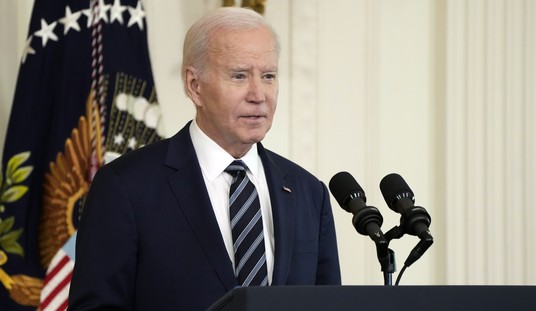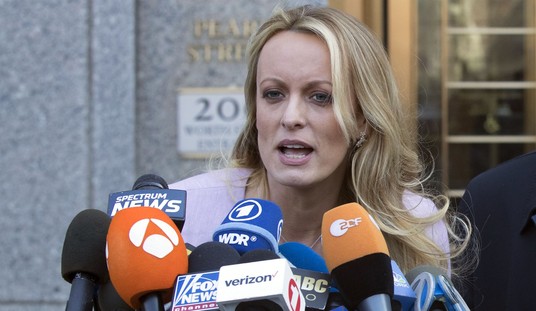Watching the Europeans go through their gyrations over Greece, it’s striking that so little of the commentary focuses on the true issue that is at stake for policymakers: the financial health of the holders of current Greek debt. Stay with me on this, because I’ll show you how it impacts current policy in the US.
There is something afoot called the “Vienna alternative” under which holders of euro-denominated debt issued by Greece would voluntarily agree to roll over their holdings on terms that are materially less favorable to them, either in terms of maturity, interest rate, collateral covenants, or whatever.
What is this “alternative” an alternative to? There are (at least) two other ways this could go. One is an involuntary restructuring of debt terms, initiated by the Greek government without agreement from its creditors. That’s also known as a default. Various ratings agencies are now in the process of heatedly debating whether the voluntary version should also be considered a default.
The other way this can go is for a broader and permanent version of what happened last year: the supranational monetary authorities (primarily the ECB and the IMF) would make a money-good offer to buy out Greek debt at a certain price, most probably higher than current market, implying a significantly lower interest rate.
This is the full-bailout strategy. If the IMF is a major player, it could be carried out using capital imported from the non-euro zone. The latter outcome would be a big winner among French and German politicians.
And now you know why the Europeans are pushing so hard for a Frenchwoman to take the place of DSK at the helm of the IMF. If the price for US support is to give the presidency of the World Bank to Hilary Clinton, well, that would be congenial to the people now running the US government. Both Clinton and Lagarde are lawyers, not economists or financial experts, and both are European-style socialists.
But as I hinted above, there is a specific interest group that is being cared for above all others, and it’s the current holders of Greek euro debt. A great many of these are banks in France and Germany.
During the past ten years, these banks loaded up on debt issued by Greece at very favorable interest rates, in effect strongly underpricing the risk of this lending. When the Greeks ultimately proved uncreditworthy, the natural effect of the underpricing was to unwind itself, with a sharp increase in interest rates on outstanding debt.
This had two immediate effects: Greece may become unable to roll over its existing borrowings (because of the high rates), threatening it with economic chaos; and its past lenders are facing capital losses on a mark-to-market basis, and even the possibility of default.
You’ll notice more than a few striking similarities in this to the 2008 crisis touched off by the failure of Lehman Brothers. (To point them all out would be another long post.) Then as now, the primary fear of policymakers was to avoid a “credit event” that would produce a cascade of capital losses among large, interconnected financial institutions. In other words, a meltdown.
At the moment, there are no indications anywhere in capital markets that such an event is imminent. This contrasts sharply with the deeply disordered conditions that prevailed from the summer of 2007 right up to the events of September 2008.
At that time, Henry Paulson drew his line in the sand and told the world that Lehman Brothers would not be supported by extraordinary efforts of US policymakers: Lehman would not be bailed out. Paulson and his team went to tremendous lengths to browbeat other institutions into mergers. But no one was willing or able to acquire Lehman.
Paulson here was trying to do the right thing, but he of all people must have understood that he was threatening the most important assumption in the whole global financial system: PRIVATE CREDITORS NEVER TAKE LOSSES.
It only took three days after Lehman failed for it to become evident that the fallout from that event (which directly affected perhaps one trillion dollars’ worth of assets) would be enough to end the global financial system, and quite likely halt the global economy. That’s the situation that was addressed by TARP, and by a whole raft of asset-purchase programs by the Fed.
Conservatives who think they understand finance like to say that TARP was a huge disaster. Very few of them have any clue that the Fed’s programs were a far larger “disaster” of the same type as TARP. And it’s the same type of thing that the ECB and IMF may now be about to undertake on behalf of Greece.
The fundamental nature of all these rescue programs is to use “social” money (which is ultimately guaranteed by taxpayers) to force up the value of assets that are impaired or valueless. The objective of the rescues is to ensure that PRIVATE CREDITORS NEVER TAKE LOSSES.
In the presence of an open-ended official buyer, holders of Greek debt could either tender (and take an enormous capital gain from current market values); or hold their debt and benefit from the huge interest rates without having to reserve large amounts of regulatory capital against it.
Of course, if the full bailout of Greece happens, the people of Greece will take it in the neck, with onerous fiscal-austerity requirements. They’ll suffer a permanent reduction in living standards, in order to pay back their old debts.
Policymakers will strongly prefer this course of action, and primarily for this reason: because it will allow private creditors in France and Germany to avoid taking losses. No one wants to see a big name French or German bank become the next Lehman Brothers.
A great many conservatives would respond to this the same way they responded to TARP: “Let the bankers fail! No one held a gun to their head to force them to make stupid loans.”
Except that this isn’t quite true. Policymakers and politicians DID INDEED encourage private lenders to expand their commitments to Greece; and to many other defaulting countries; and to US homebuyers, etc etc etc.
The point here is that the expansion of credit is what has stood behind the broad-based economic growth of the three decades to 2008. If bankers didn’t take more risk (with implicit government guarantees), then growth would not have been so strong. There has been clear political support for credit-driven growth in the developed economies for decades now.
But as it turns out, the cost of that risk could not be avoided. When we use official money to buy impaired assets at nearly (nominal) par, the effect is to ratify the original overpricing of this risk, and to shift the resulting losses from private creditors to taxpayers. The INEVITABLE result is an effective deflation or austerity.
That explains the position of Greece today; of the US economy after the housing-bubble collapse; and most ominously, of the US in the near future as we come up to a huge expansion in social commitments.
It would be a very interesting experiment indeed for someone to take a step back to sound banking, in which private creditors are actually allowed to fail. One of the thought-experiments I’ve been running is: what if Congress passed a law to allow American homeowners to simply default on their mortgages with no questions asked? You’d lose all the equity in your house and your other assets, but you wouldn’t lose your job, and you wouldn’t lose your ability to go into a rental. And your bank would take the loss.
Unfortunately, no one wants to take the risk of total systemic collapse that this would entail.
Therefore, continued austerity and low economic growth is in our future. Inevitably.














Join the conversation as a VIP Member